From the Pulitzer Prize–winning author of Battle Cry of Freedom, a powerful new reckoning with Jefferson Davis as military commander of the Confederacy
History has not been kind to Jefferson Davis. His cause went down in disastrous defeat and left the South impoverished for generations. If that cause had succeeded, it would have torn the United States in two and preserved the institution of slavery. Many Americans in Davis’s own time and in later generations considered him an incompetent leader, if not a traitor. Not so, argues James M. McPherson. In Embattled Rebel, McPherson shows us that Davis might have been on the wrong side of history, but it is too easy to diminish him because of his cause’s failure. In order to understand the Civil War and its outcome, it is essential to give Davis his due as a military leader and as the president of an aspiring Confederate nation.
Davis did not make it easy on himself. His subordinates and enemies alike considered him difficult, egotistical, and cold. He was gravely ill throughout much of the war, often working from home and even from his sickbed. Nonetheless, McPherson argues, Davis shaped and articulated the principal policy of the Confederacy with clarity and force: the quest for independent nationhood. Although he had not been a fire-breathing secessionist, once he committed himself to a Confederate nation he never deviated from this goal. In a sense, Davis was the last Confederate left standing in 1865.
As president of the Confederacy, Davis devoted most of his waking hours to military strategy and operations, along with Commander Robert E. Lee, and delegated the economic and diplomatic functions of strategy to his subordinates. Davis was present on several battlefields with Lee and even took part in some tactical planning; indeed, their close relationship stands as one of the great military-civilian partnerships in history.
Most critical appraisals of Davis emphasize his choices in and management of generals rather than his strategies, but no other chief executive in American history exercised such tenacious hands-on influence in the shaping of military strategy. And while he was imprisoned for two years after the Confederacy’s surrender awaiting a trial for treason that never came, and lived for another twenty-four years, he never once recanted the cause for which he had fought and lost. McPherson gives us Jefferson Davis as the commander in chief he really was, showing persuasively that while Davis did not win the war for the South, he was scarcely responsible for losing it.
History has not been kind to Jefferson Davis. His cause went down in disastrous defeat and left the South impoverished for generations. If that cause had succeeded, it would have torn the United States in two and preserved the institution of slavery. Many Americans in Davis’s own time and in later generations considered him an incompetent leader, if not a traitor. Not so, argues James M. McPherson. In Embattled Rebel, McPherson shows us that Davis might have been on the wrong side of history, but it is too easy to diminish him because of his cause’s failure. In order to understand the Civil War and its outcome, it is essential to give Davis his due as a military leader and as the president of an aspiring Confederate nation.
Davis did not make it easy on himself. His subordinates and enemies alike considered him difficult, egotistical, and cold. He was gravely ill throughout much of the war, often working from home and even from his sickbed. Nonetheless, McPherson argues, Davis shaped and articulated the principal policy of the Confederacy with clarity and force: the quest for independent nationhood. Although he had not been a fire-breathing secessionist, once he committed himself to a Confederate nation he never deviated from this goal. In a sense, Davis was the last Confederate left standing in 1865.
As president of the Confederacy, Davis devoted most of his waking hours to military strategy and operations, along with Commander Robert E. Lee, and delegated the economic and diplomatic functions of strategy to his subordinates. Davis was present on several battlefields with Lee and even took part in some tactical planning; indeed, their close relationship stands as one of the great military-civilian partnerships in history.
Most critical appraisals of Davis emphasize his choices in and management of generals rather than his strategies, but no other chief executive in American history exercised such tenacious hands-on influence in the shaping of military strategy. And while he was imprisoned for two years after the Confederacy’s surrender awaiting a trial for treason that never came, and lived for another twenty-four years, he never once recanted the cause for which he had fought and lost. McPherson gives us Jefferson Davis as the commander in chief he really was, showing persuasively that while Davis did not win the war for the South, he was scarcely responsible for losing it.
The inspiring and revelatory autobiography of the defense secretary and CIA director who led the intelligence war that killed Bin Laden, among many important roles in a legendary career
It could be said that Leon Panetta has had two of the most consequential careers of any American public servant in the past fifty years. His first career, beginning as an army intelligence officer and including a distinguished run as one of Congress’s most powerful and respected members, lasted thirty-five years and culminated in his transformational role as Clinton’s budget czar and White House chief of staff. He then “retired” to establish the Panetta Institute with his wife of fifty years, Sylvia; to serve on the Iraq Study Group; and to protect his beloved California coastline. But in 2009, he accepted what many said was a thankless task: returning to public office as the director of the CIA, taking it from a state of turmoil after the Bush-era torture debates and moving it back to the vital center of America’s war against Al Qaeda, including the campaign that led to the killing of Osama bin Laden. And then, in the wake of bin Laden’s death, Panetta became the U.S. secretary of defense, inheriting two troubled wars in a time of austerity and painful choices.
Like his career, Worthy Fights is a reflection of Panetta’s values. It is imbued with the frank, grounded, and often quite funny spirit of a man who never lost touch with where he came from: his family’s walnut farm in beautiful Carmel Valley, California. It is also a testament to a lost kind of political leadership, which favors progress and duty to country over partisanship. Panetta is a Democrat who pushed for balanced budgets while also expanding care for the elderly and sick; a devout Catholic who opposes the death penalty but had to weigh every drone strike from 2009 through 2011. Throughout his career, Panetta’s polestar has been his belief that a public servant’s real choice is between leadership or crisis. Troubles always come about through no fault of one’s own, but most can be prevented with courage and foresight.
As always, Panetta calls them as he sees them in Worthy Fights. Suffused with its author’s decency and stubborn common sense, the book is an epic American success story, a great political memoir, and a revelatory view onto many of the great figures and events of our time.
It could be said that Leon Panetta has had two of the most consequential careers of any American public servant in the past fifty years. His first career, beginning as an army intelligence officer and including a distinguished run as one of Congress’s most powerful and respected members, lasted thirty-five years and culminated in his transformational role as Clinton’s budget czar and White House chief of staff. He then “retired” to establish the Panetta Institute with his wife of fifty years, Sylvia; to serve on the Iraq Study Group; and to protect his beloved California coastline. But in 2009, he accepted what many said was a thankless task: returning to public office as the director of the CIA, taking it from a state of turmoil after the Bush-era torture debates and moving it back to the vital center of America’s war against Al Qaeda, including the campaign that led to the killing of Osama bin Laden. And then, in the wake of bin Laden’s death, Panetta became the U.S. secretary of defense, inheriting two troubled wars in a time of austerity and painful choices.
Like his career, Worthy Fights is a reflection of Panetta’s values. It is imbued with the frank, grounded, and often quite funny spirit of a man who never lost touch with where he came from: his family’s walnut farm in beautiful Carmel Valley, California. It is also a testament to a lost kind of political leadership, which favors progress and duty to country over partisanship. Panetta is a Democrat who pushed for balanced budgets while also expanding care for the elderly and sick; a devout Catholic who opposes the death penalty but had to weigh every drone strike from 2009 through 2011. Throughout his career, Panetta’s polestar has been his belief that a public servant’s real choice is between leadership or crisis. Troubles always come about through no fault of one’s own, but most can be prevented with courage and foresight.
As always, Panetta calls them as he sees them in Worthy Fights. Suffused with its author’s decency and stubborn common sense, the book is an epic American success story, a great political memoir, and a revelatory view onto many of the great figures and events of our time.
The dynamic and always controversial television producer shares fifty years of show business and politics, with all the candor and wisdom expected from the creator of "All in the Family"
The legendary creator of iconic television programs: "All in the Family," "Sanford and Son," "Maude," "Good Times," The Jeffersons," and "Mary Hartman, Mary Hartman." Norman Lear remade our television culture—while leading a life of unparalleled political, civic, and social involvement. Sharing the wealth of Lear’s ninety years, Even This I Get to Experience is a memoir as touching and remarkable as the life he has led.
In the nineteen seventies, Lear’s comedies were viewed by one hundred and twenty million people per week—yes, one hundred and twenty million— with stories that reflected the most serious issues of their lives and still left them howling. But before this, Lear led a charmed life throughout postwar Hollywood’s golden years, befriending the likes of Carl Reiner and Mel Brooks; writing and directing Frank Sinatra, Robert Redford, Dick Van Dyke, and Martha Raye; becoming the highest paid comic writer in the country while working for Jerry Lewis and Dean Martin. Not to mention, Lear flew some fifty bombing missions over Germany with the Fifteenth Air Force.
Shamelessly in love with the country the Founding Fathers laid out for him while his own father was serving time, Lear won the first American Legion Oratorical Contest speaking about the Constitution. He later founded "People For the American Way", a national organization to protect the civil rights and liberties of us all, and bought an original copy of the Declaration of Independence, printed the night of July 4, 1776, not to hang on a wall in his home, but to travel across the country to schools, and libraries, and public institutions to be shared with citizens everywhere.
The legendary creator of iconic television programs: "All in the Family," "Sanford and Son," "Maude," "Good Times," The Jeffersons," and "Mary Hartman, Mary Hartman." Norman Lear remade our television culture—while leading a life of unparalleled political, civic, and social involvement. Sharing the wealth of Lear’s ninety years, Even This I Get to Experience is a memoir as touching and remarkable as the life he has led.
In the nineteen seventies, Lear’s comedies were viewed by one hundred and twenty million people per week—yes, one hundred and twenty million— with stories that reflected the most serious issues of their lives and still left them howling. But before this, Lear led a charmed life throughout postwar Hollywood’s golden years, befriending the likes of Carl Reiner and Mel Brooks; writing and directing Frank Sinatra, Robert Redford, Dick Van Dyke, and Martha Raye; becoming the highest paid comic writer in the country while working for Jerry Lewis and Dean Martin. Not to mention, Lear flew some fifty bombing missions over Germany with the Fifteenth Air Force.
Shamelessly in love with the country the Founding Fathers laid out for him while his own father was serving time, Lear won the first American Legion Oratorical Contest speaking about the Constitution. He later founded "People For the American Way", a national organization to protect the civil rights and liberties of us all, and bought an original copy of the Declaration of Independence, printed the night of July 4, 1776, not to hang on a wall in his home, but to travel across the country to schools, and libraries, and public institutions to be shared with citizens everywhere.
Married three times and the father of six children ranging from nineteen to sixty-eight, Lear’s penetrating look at family life, parenthood, and marriage is a volume in itself. Told with the charm and candor of one of the century’s greatest storytellers, Even This I Get To Experience is nothing less than a profound gift, endlessly readable and characteristically unforgettable.
From one of the most important army officers of his generation, a memoir of the revolution in warfare he helped lead, in combat and in Washington
When John Nagl was an army tank commander in the first Gulf War of 1991, fresh out of West Point and Oxford, he could already see that America’s military superiority meant that the age of conventional combat was nearing an end. Nagl was an early convert to the view that America’s greatest future threats would come from asymmetric warfare—guerrillas, terrorists, and insurgents. But that made him an outsider within the army; and as if to double down on his dissidence, he scorned the conventional path to a general’s stars and got the military to send him back to Oxford to study the history of counterinsurgency in earnest, searching for guideposts for America. The result would become the bible of the counterinsurgency movement, a book called Learning to Eat Soup with a Knife.
But it would take the events of 9/11 and the botched aftermath of the Iraq invasion to give counterinsurgency urgent contemporary relevance. John Nagl’s ideas finally met their war. But even as his book began ricocheting around the Pentagon, Nagl, now operations officer of a tank battalion of the 1st Infantry Division, deployed to a particularly unsettled quadrant of Iraq. Here theory met practice, violently. No one knew how messy even the most successful counterinsurgency campaign is better than Nagl, and his experience in Anbar Province cemented his view. After a year’s hard fighting, Nagl was sent to the Pentagon to work for Deputy Secretary of Defense Paul Wolfowitz, where he was tapped by General David Petraeus to coauthor the new army and marine counterinsurgency field manual, rewriting core army doctrine in the middle of two bloody land wars and helping the new ideas win acceptance in one of the planet’s most conservative bureaucracies. That doctrine changed the course of two wars and the thinking of an army.
Nagl is not blind to the costs or consequences of counterinsurgency, a policy he compared to “eating soup with a knife.” The men who died under his command in Iraq will haunt him to his grave. When it comes to war, there are only bad choices; the question is only which ones are better and which worse. Nagl’s memoir is a profound education in modern war—in theory, in practice, and in the often tortured relationship between the two. It is essential reading for anyone who cares about the fate of America’s soldiers and the purposes for which their lives are put at risk.
When John Nagl was an army tank commander in the first Gulf War of 1991, fresh out of West Point and Oxford, he could already see that America’s military superiority meant that the age of conventional combat was nearing an end. Nagl was an early convert to the view that America’s greatest future threats would come from asymmetric warfare—guerrillas, terrorists, and insurgents. But that made him an outsider within the army; and as if to double down on his dissidence, he scorned the conventional path to a general’s stars and got the military to send him back to Oxford to study the history of counterinsurgency in earnest, searching for guideposts for America. The result would become the bible of the counterinsurgency movement, a book called Learning to Eat Soup with a Knife.
But it would take the events of 9/11 and the botched aftermath of the Iraq invasion to give counterinsurgency urgent contemporary relevance. John Nagl’s ideas finally met their war. But even as his book began ricocheting around the Pentagon, Nagl, now operations officer of a tank battalion of the 1st Infantry Division, deployed to a particularly unsettled quadrant of Iraq. Here theory met practice, violently. No one knew how messy even the most successful counterinsurgency campaign is better than Nagl, and his experience in Anbar Province cemented his view. After a year’s hard fighting, Nagl was sent to the Pentagon to work for Deputy Secretary of Defense Paul Wolfowitz, where he was tapped by General David Petraeus to coauthor the new army and marine counterinsurgency field manual, rewriting core army doctrine in the middle of two bloody land wars and helping the new ideas win acceptance in one of the planet’s most conservative bureaucracies. That doctrine changed the course of two wars and the thinking of an army.
Nagl is not blind to the costs or consequences of counterinsurgency, a policy he compared to “eating soup with a knife.” The men who died under his command in Iraq will haunt him to his grave. When it comes to war, there are only bad choices; the question is only which ones are better and which worse. Nagl’s memoir is a profound education in modern war—in theory, in practice, and in the often tortured relationship between the two. It is essential reading for anyone who cares about the fate of America’s soldiers and the purposes for which their lives are put at risk.
A preeminent constitutional scholar offers a hard-hitting analysis of the Supreme Court over the last two hundred years
Most Americans share the perception that the Supreme Court is objective, but Erwin Chemerinsky, one of the country’s leading constitutional lawyers, shows that this is nonsense and always has been. The Court is made up of fallible individuals who base decisions on their own biases.
Most Americans share the perception that the Supreme Court is objective, but Erwin Chemerinsky, one of the country’s leading constitutional lawyers, shows that this is nonsense and always has been. The Court is made up of fallible individuals who base decisions on their own biases.
Today, the Roberts Court is promoting a conservative agenda under the guise of following a neutral methodology, but notorious decisions, such as Bush vs. Gore and United Citizens, are hardly recent exceptions. This devastating book details, case by case, how the Court has largely failed throughout American history at its most important tasks and at the most important times.
Only someone of Chemerinsky’s stature and breadth of knowledge could take on this controversial topic. Powerfully arguing for term limits for justices and a reassessment of the institution as a whole, The Case Against the Supreme Court is a timely and important book that will be widely read and cited for decades to come.
Only someone of Chemerinsky’s stature and breadth of knowledge could take on this controversial topic. Powerfully arguing for term limits for justices and a reassessment of the institution as a whole, The Case Against the Supreme Court is a timely and important book that will be widely read and cited for decades to come.
A passionate hymn to the power of fiction to change people’s lives, by the #1 New York Times bestselling author of Reading Lolita in Tehran
Ten years ago, Azar Nafisi electrified readers with her million-copy bestseller, Reading Lolita in Tehran, which told the story of how, against the backdrop of morality squads and executions, she taught The Great Gatsby and other classics to her eager students in Iran. In this exhilarating followup, Nafisi has written the book her fans have been waiting for: an impassioned, beguiling, and utterly original tribute to the vital importance of fiction in a democratic society. What Reading Lolita in Tehran was for Iran, The Republic of Imagination is for America.
Taking her cue from a challenge thrown to her in Seattle, where a skeptical reader told her that Americans don’t care about books the way they did back in Iran, she energetically responds to those who say fiction has nothing to teach us. Blending memoir and polemic with close readings of her favorite American novels—The Adventures of Huckleberry Finn, Babbitt, and The Heart Is a Lonely Hunter, among others—she invites us to join her as citizens of her “Republic of Imagination,” a country where the villains are conformity and orthodoxy and the only passport to entry is a free mind and a willingness to dream.
Ten years ago, Azar Nafisi electrified readers with her million-copy bestseller, Reading Lolita in Tehran, which told the story of how, against the backdrop of morality squads and executions, she taught The Great Gatsby and other classics to her eager students in Iran. In this exhilarating followup, Nafisi has written the book her fans have been waiting for: an impassioned, beguiling, and utterly original tribute to the vital importance of fiction in a democratic society. What Reading Lolita in Tehran was for Iran, The Republic of Imagination is for America.
Taking her cue from a challenge thrown to her in Seattle, where a skeptical reader told her that Americans don’t care about books the way they did back in Iran, she energetically responds to those who say fiction has nothing to teach us. Blending memoir and polemic with close readings of her favorite American novels—The Adventures of Huckleberry Finn, Babbitt, and The Heart Is a Lonely Hunter, among others—she invites us to join her as citizens of her “Republic of Imagination,” a country where the villains are conformity and orthodoxy and the only passport to entry is a free mind and a willingness to dream.
The author of the New York Times bestseller The Plantagenets chronicles the next chapter in British history—the historical backdrop for Game of Thrones
The crown of England changed hands five times over the course of the fifteenth century, as two branches of the Plantagenet dynasty fought to the death for the right to rule. In this riveting follow-up to The Plantagenets, celebrated historian Dan Jones describes how the longest-reigning British royal family tore itself apart until it was finally replaced by the Tudors. Some of the greatest heroes and villains of history were thrown together in these turbulent times, from Joan of Arc to Henry V, whose victory at Agincourt marked the high point of the medieval monarchy, and Richard III, who murdered his own nephews in a desperate bid to secure his stolen crown. This was a period when headstrong queens and consorts seized power and bent men to their will. With vivid descriptions of the battles of Towton and Bosworth, where the last Plantagenet king was slain, this dramatic narrative history revels in bedlam and intrigue. It also offers a long-overdue corrective to Tudor propaganda, dismantling their self-serving account of what they called the Wars of the Roses.
The crown of England changed hands five times over the course of the fifteenth century, as two branches of the Plantagenet dynasty fought to the death for the right to rule. In this riveting follow-up to The Plantagenets, celebrated historian Dan Jones describes how the longest-reigning British royal family tore itself apart until it was finally replaced by the Tudors. Some of the greatest heroes and villains of history were thrown together in these turbulent times, from Joan of Arc to Henry V, whose victory at Agincourt marked the high point of the medieval monarchy, and Richard III, who murdered his own nephews in a desperate bid to secure his stolen crown. This was a period when headstrong queens and consorts seized power and bent men to their will. With vivid descriptions of the battles of Towton and Bosworth, where the last Plantagenet king was slain, this dramatic narrative history revels in bedlam and intrigue. It also offers a long-overdue corrective to Tudor propaganda, dismantling their self-serving account of what they called the Wars of the Roses.
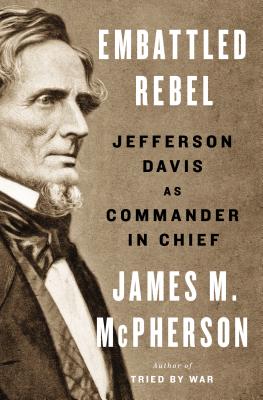
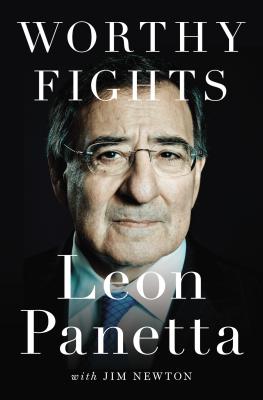

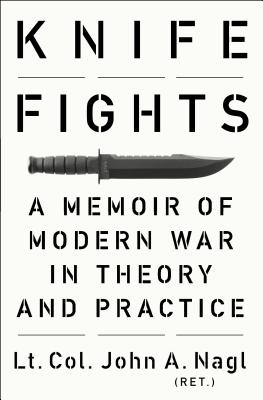
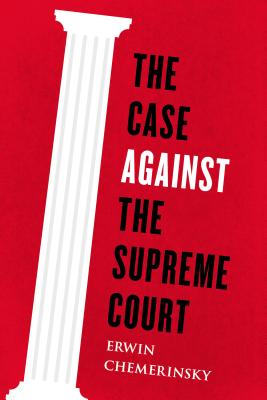
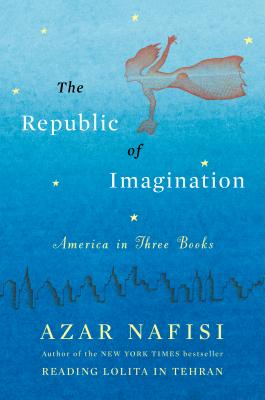

No comments:
Post a Comment